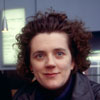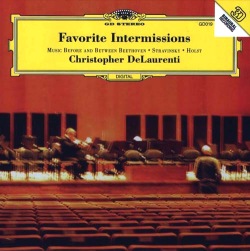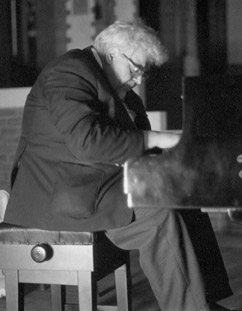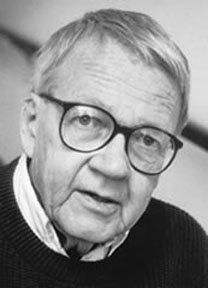Our regular listen to and look at living, breathing composers and performers that you may not know yet, but I know you should… And can, right here and now, since they’re nice enough to offer so much good listening online:
Bun-Ching Lam (b. 1954 — China / US)
 — Born in the Macau region of China, Bun-Ching Lam began studying piano at the age of seven and gave her first public solo recital at fifteen. In 1976, she received a B.A. in piano performance from the Chinese University of Hong Kong. She then accepted a scholarship from the University of California at San Diego, where she studied composition with Bernard Rands, Robert Erickson, Roger Reynolds, Pauline Oliveros. Afterwards she was invited to join the music faculty of the Cornish College of the Arts in Seattle, where she taught until 1986. She’s been the Jean MacDuff Vaux Composer-in-Residence at Mills College, California, the America Dance Festival, the New Jersey Symphony Orchestra; and a Visiting Professor in Composition at the School of Music, Yale University, and at Bennington College in Vermont. She now divides her time between Paris and New York.
— Born in the Macau region of China, Bun-Ching Lam began studying piano at the age of seven and gave her first public solo recital at fifteen. In 1976, she received a B.A. in piano performance from the Chinese University of Hong Kong. She then accepted a scholarship from the University of California at San Diego, where she studied composition with Bernard Rands, Robert Erickson, Roger Reynolds, Pauline Oliveros. Afterwards she was invited to join the music faculty of the Cornish College of the Arts in Seattle, where she taught until 1986. She’s been the Jean MacDuff Vaux Composer-in-Residence at Mills College, California, the America Dance Festival, the New Jersey Symphony Orchestra; and a Visiting Professor in Composition at the School of Music, Yale University, and at Bennington College in Vermont. She now divides her time between Paris and New York.
From an interview with Meet The Composer‘s Ken Gallo:
Bun-Ching Lam: Half of my life I have lived in the United States and I grew up in Macau, which was a Portuguese colony. So, I was well versed in Western culture; but still deeply rooted in my Chinese culture. I have the best of both worlds. Actually, I don’t think of it as two worlds. It’s one world; one with a very cosmopolitan view. I’m comfortable here; I’m comfortable in China, and, actually, I’m comfortable in Europe. I speak all these different languages. There is no conflict in who I am. Sometimes I feel like eating Japanese food; sometimes I feel like eating French. I am a citizen of the world. It’s all the same to me.
Ken Gallo: You didn’t grow up under Communist rule?
BCL: No, I grew up under Portuguese government. My piano teacher was Portuguese and we spoke English most of the time. My background is very different from other Chinese-American composers like Bright Sheng, Zhou Long and Chen Yi, although we are all Chinese.
KG: When you lived in China, did you know these other Chinese composers who are now your American colleagues?
BCL: Actually, we only met in 1986 in Hong Kong during a Chinese composers conference. That was the first time; 10 years after the Cultural Revolution.
KG: Did you find that you had any common stories to share about the Cultural Revolution?
BCL: Not really. For example, Chen Yi is from Canton which is not far from Macau; like from NYC to Albany. Although, we both speak Cantonese, politically Canton was a very different climate than Macau. I did go to a so-called “Communist school,” so I knew all the Revolutionary songs. During the Cultural Revolution, when I was in school, I was playing the accordion and singing songs praising Chairman Mao. We all have that in common. When we met they were very surprised when I knew all those songs.
Sure, Chen Yi’s hit the big awards, Tan Dun’s the flavor-of-the-month; but Bun-Ching Lam’s been working her own brand of fusion every bit as long or longer, just as comfortable writing for zheng, dizi, erhu and sho as for trombone, violin, or piano, and has made plenty of more-than-wonderful music. From her site, follow the link marked “Samples” and you’ll find MP3s of complete movements of a number of her works, a good 50 minutes at least.
 Philip Glass turns 70 today and it seems to me he is doing so without much of the hoopla that surrounded Steve Reich’s attainment of that milestone a few months back. No mention of the event in today’s New York Times and Google News turns up only a brief note about a birthday concert in Nashville. Underwhelming reaction for a man who is America’s best-known living composer and one whose music is so widely available in so many forms–CDs, films, concerts and so on.
Philip Glass turns 70 today and it seems to me he is doing so without much of the hoopla that surrounded Steve Reich’s attainment of that milestone a few months back. No mention of the event in today’s New York Times and Google News turns up only a brief note about a birthday concert in Nashville. Underwhelming reaction for a man who is America’s best-known living composer and one whose music is so widely available in so many forms–CDs, films, concerts and so on. This looks neat. Miller Theater is doing the U.S. premiere of
This looks neat. Miller Theater is doing the U.S. premiere of  My pal
My pal  John Ogdon was born, seventy years ago, on January 27th 1937. The following words were written by him in 1981. “Here then…are some of the harsh facts behind the words ‘severe mental illness’ and ‘serious nervous breakdown’ which the press has been using about me so often lately. Not that I am complaining about the press! – I was thrilled by the sympathetic and wide spread media interest that came my way both before and after my return to the … concert stage”.
John Ogdon was born, seventy years ago, on January 27th 1937. The following words were written by him in 1981. “Here then…are some of the harsh facts behind the words ‘severe mental illness’ and ‘serious nervous breakdown’ which the press has been using about me so often lately. Not that I am complaining about the press! – I was thrilled by the sympathetic and wide spread media interest that came my way both before and after my return to the … concert stage”.  — Born in the Macau region of China, Bun-Ching Lam began studying piano at the age of seven and gave her first public solo recital at fifteen. In 1976, she received a B.A. in piano performance from the Chinese University of Hong Kong. She then accepted a scholarship from the University of California at San Diego, where she studied composition with Bernard Rands, Robert Erickson, Roger Reynolds, Pauline Oliveros. Afterwards she was invited to join the music faculty of the Cornish College of the Arts in Seattle, where she taught until 1986. She’s been the Jean MacDuff Vaux Composer-in-Residence at Mills College, California, the America Dance Festival, the New Jersey Symphony Orchestra; and a Visiting Professor in Composition at the School of Music, Yale University, and at Bennington College in Vermont. She now divides her time between Paris and New York.
— Born in the Macau region of China, Bun-Ching Lam began studying piano at the age of seven and gave her first public solo recital at fifteen. In 1976, she received a B.A. in piano performance from the Chinese University of Hong Kong. She then accepted a scholarship from the University of California at San Diego, where she studied composition with Bernard Rands, Robert Erickson, Roger Reynolds, Pauline Oliveros. Afterwards she was invited to join the music faculty of the Cornish College of the Arts in Seattle, where she taught until 1986. She’s been the Jean MacDuff Vaux Composer-in-Residence at Mills College, California, the America Dance Festival, the New Jersey Symphony Orchestra; and a Visiting Professor in Composition at the School of Music, Yale University, and at Bennington College in Vermont. She now divides her time between Paris and New York.
